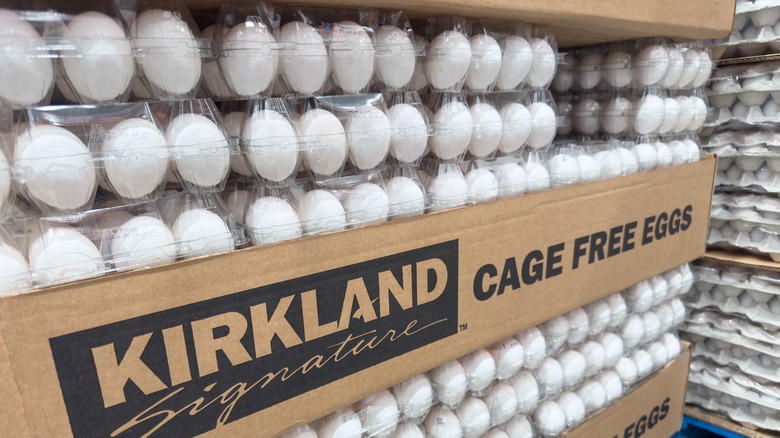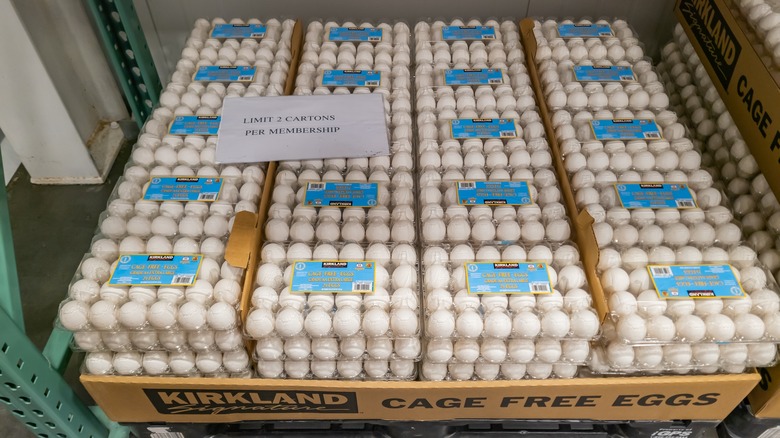Are Costco's Eggs Actually Cage-Free?
Bulk buys are what Costco customers live for, but they're no excuse for inhumane poultry practices. Back in 2015, Costco along with many others in the food industry made a commitment to only carry cage-free eggs in its stores. These types of changes take time though. As it turns out, the warehouse chain has not reached 100 percent of its shell egg supply as being cage free just yet.
To be officially labeled "cage-free," eggs must be laid by hens that are raised in an open indoor environment. This doesn't mean the hens have complete freedom; some might be raised on farms where the hen's space is overcrowded, and the hens might still live their entire lives under artificial light rather than natural sunlight. Despite those shortcomings, though, hens raised cage-free have an overall better quality of life than those confined to wire cages. Trust us, things get even more complicated when you start talking about pasture-raised or vegetarian eggs.
When Costco first announced its commitment to cage-free eggs, only 26 percent of its overall supply met the requirements. However, by September of 2022, the company said 97 percent of its U.S. shell egg supply was cage-free. However, Costco is a global company, and several factors have caused it to backslide a bit on its commitment, both domestically and abroad.
Why Costco's egg supply isn't 100% cage-free
While Costco's cage-free egg sales did close at 97 percent in 2022, by 2023, its U.S. supply of eggs were 91.6 percent cage-free. Globally, the percentage of supply that was cage-free in 2023 was around 78 percent. That's a slip from the nearly 80 percent it boasted in fiscal year 2022, but the company points to the Avian Flu outbreak, which caused egg shortages in both Canada and the U.S., as a reason for the temporary decline. Costco's animal welfare report says that although its cartoned shell egg supply is not 100 percent cage-free, its Kirkland Signature Liquid Eggs are 100 percent cage-free in the U.S.
In Taiwan, where the store's cage-free shell egg supply is at just 16 percent, the eggs that are not cage-free come from hens raised in cages that had more "usable space, scratch pads/mats, perches and nest boxes, allowing the hens to perform more natural behavior." In many of the countries where Costco's cage-free percentage is undoubtedly low, it points to local availability as a challenge.
For Costco's non-egg laying hens, called broilers, the company has also adopted a policy of being cage-free. Broiler hens can have a lifespan of less than 50 days, but Costco follows the standards of the National Chicken Council (NCC) as most other poultry producing companies in the U.S. do. Hopefully, the recent decline and other challenges are just a fluke, and the global warehouse chain can get back on track to fulfill its commitment to consumers and animal welfare sooner rather than later.

